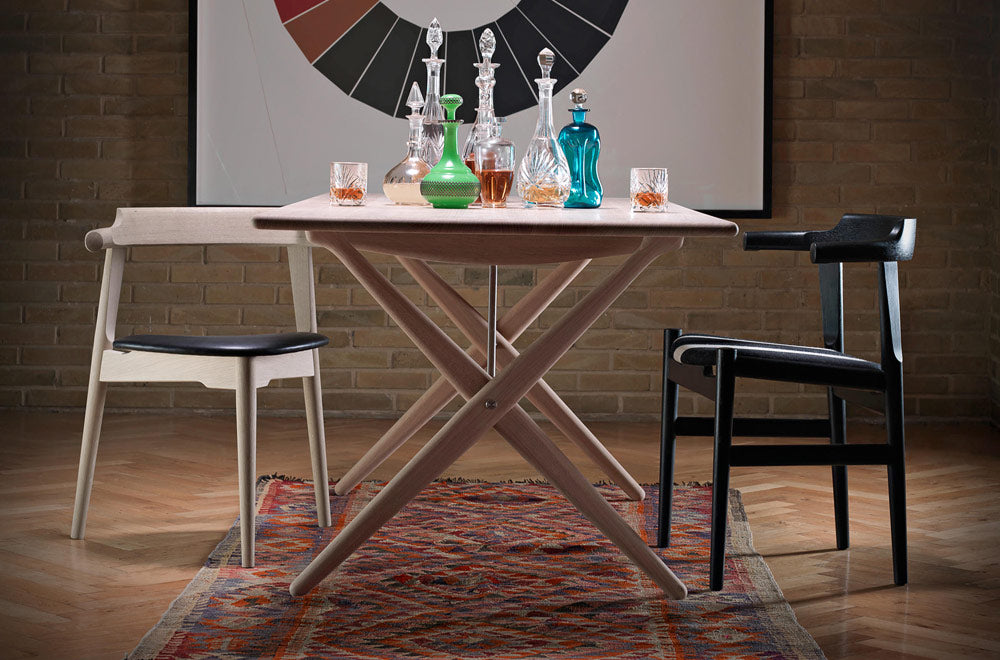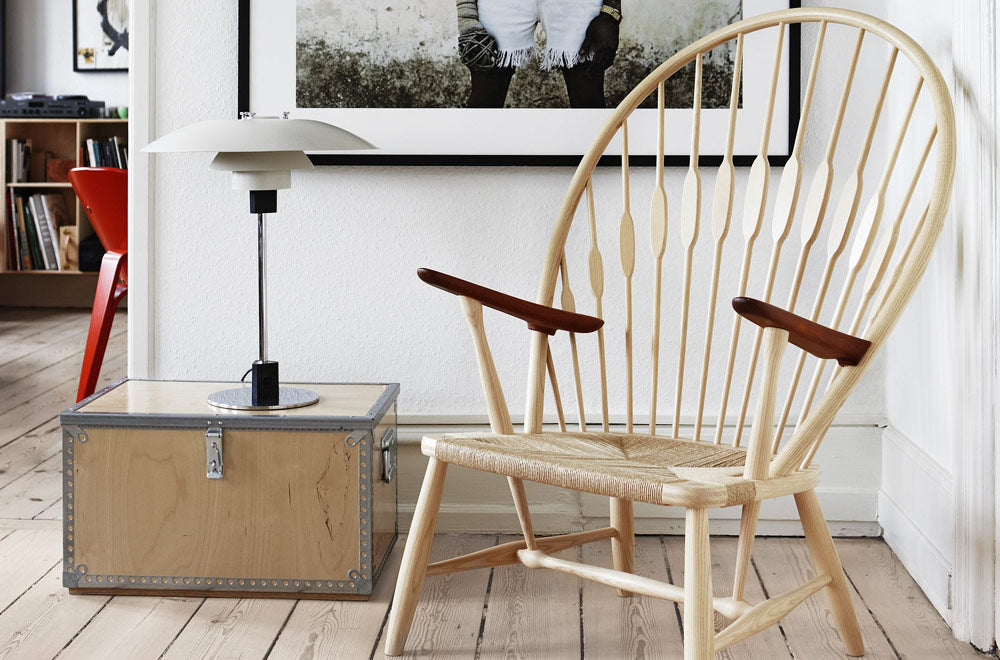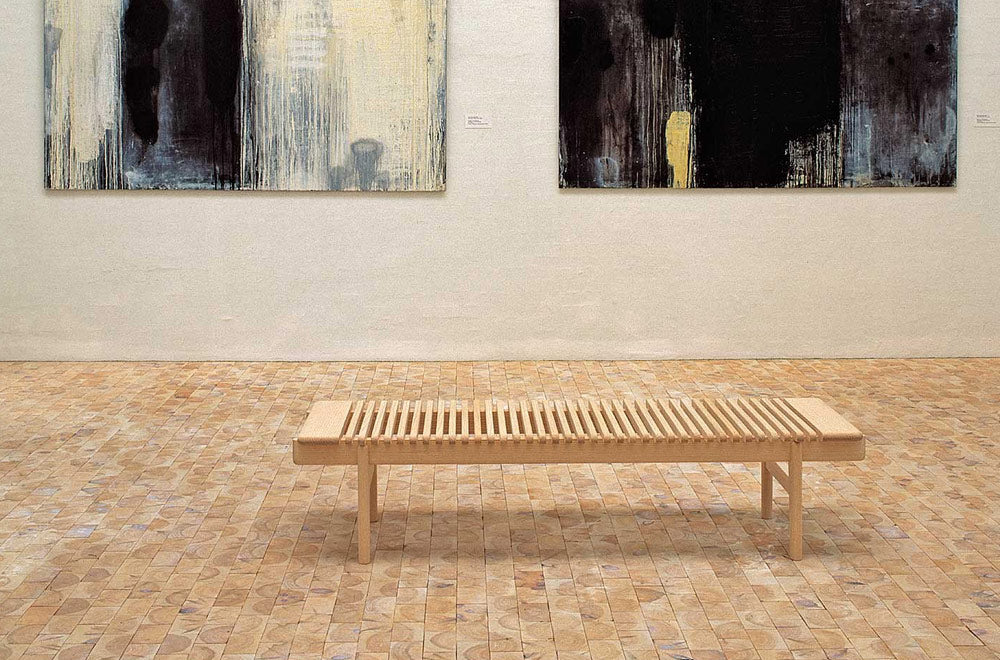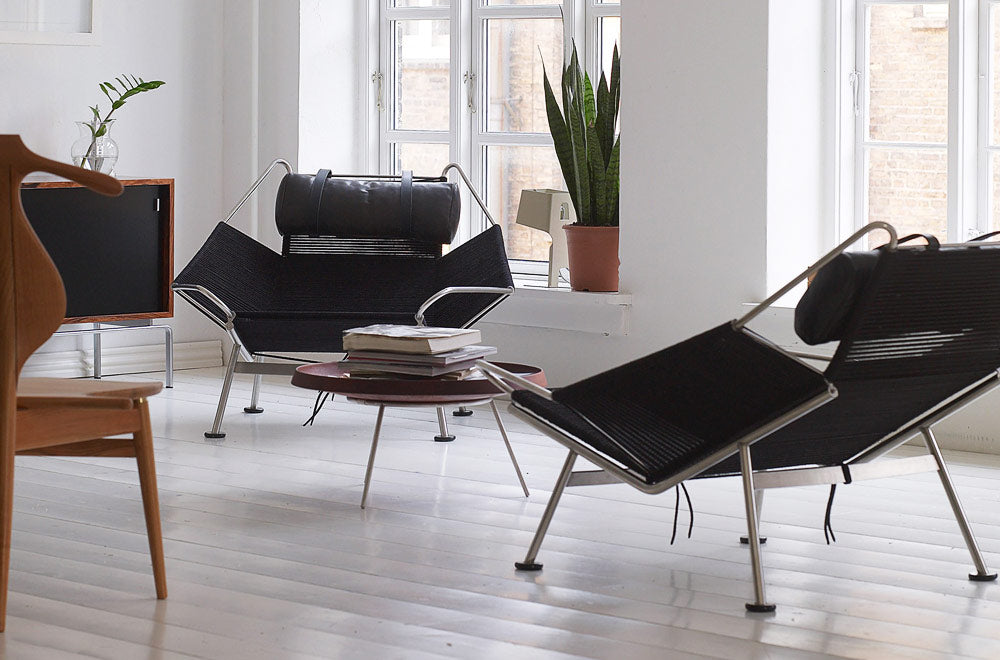20% Off Early Black Friday SALE Ends Midnight Sunday 24 November. Use code CULTBF24 at checkout. T&C's apply, click for details.
Wegner came up with the idea for the Valet Chair in 1951, following a long talk with Professor of Architecture Steen Eiler Rasmussen and designer Kay Bojesen about the problems of folding clothes in the most practical manner when it was time for bed. But the process of completing the design was not initiated before the Danish King Frederik IX ordered one after seeing the first four-legged version.
Wegner was dissatisfied with the four-legged version and continued working on the design for two years, before the King could finally receive his chair. By then the three-legged version had been created and made for the King in pine with a teak seat. Wegner wanted to show the King what an extraordinary beautiful chair he could make in even the cheap pinewood. Teak was used for the seat to stretch the exclusivity of the design. The Danish King ended up ordering a total of ten Valet Chairs.
Son of a shoe-maker in southern Jutland, Hans Wegner, finished his formal training as a cabinetmaker with master cabinetmaker Stahlberg in 1930 before starting at Teknologisk Institut in Copenhagen. He soon moved to the School of Arts and Crafts in the Danish capital where he became architect in 1938, and started teaching in 1946.
In 1940 he joined Arne Jacobsen and Erik Møller in Arhus, to design the furniture for the new Arhus city hall. He started to work with 'minister' cabinetmaker Johannes Hansen in 1940 and showed his first furniture in the famous Hansen store on Bredgade 65 in 1941. Johannes Hansen was more than twice as old as the 26 year old Wegner but the unique collaboration between the two became the undisputed backbone of Danish furniture design and the main reason for it's world wide recognition in the fifties and sixties. The Copenhagen Museum of Art and Industry acquired the first Wegner chair in 1942.
In 1943 he started his own design office and 1 year later designed the first of a long series of 'chinese' chairs inspired by portraits of Danish merchants sitting in Ming chairs for Fritz Hansen. In 1950 Wegner designed the “Wishbone Chair” produced by Carl Hansen & Søn in Odense which became the most successful of all Wegner chairs. Most well known for it’s use by Kennedy and Nixon in their famous CBS TV debate of 1960.











